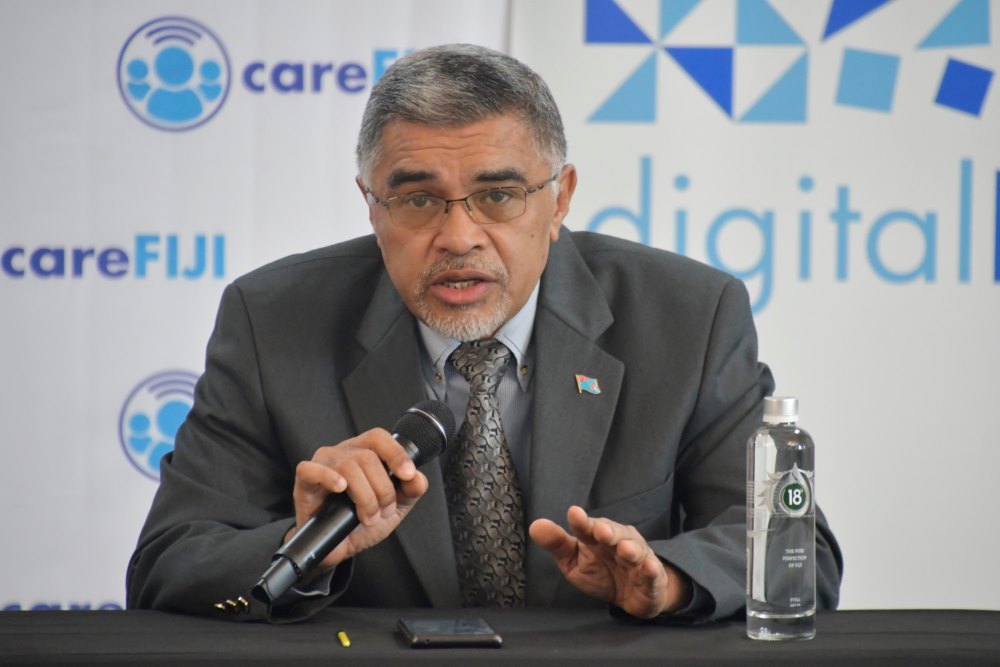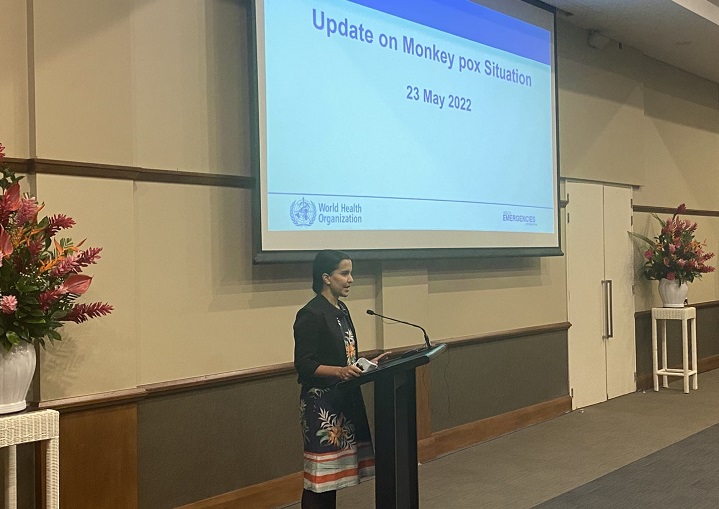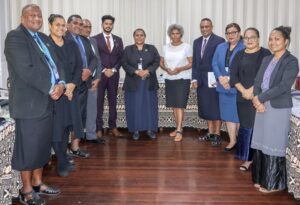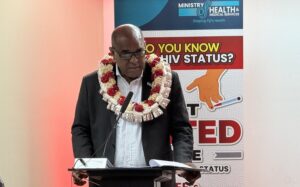Infectious Disease specialist Dr Aalisha Sahu Khan said that although cases of monkeypox are rare, Fiji needs to be prepared still.
Fiji has not had any cases of monkeypox to date, but it does not mean that it cannot happen, Dr. Aalisha says pointing out “unusual” aspects of the current outbreak and the dangers the disease poses to children and those who have a weak immune system.
“The outbreaks are happening in countries that are normally non-endemic,” Dr Aalisha.
First discovered in the 50s and then in 1970 in Nigeria, monkeypox has been endemic to certain parts of Africa for decades – in West Africa and Central Africa. Over the years, there have been exportation of cases to other countries, mainly developed countries like the UK and US among others.
In those instances however cases are typically contained, unlike the current outbreak.
“What’s unusual, a bit unusual, is that the exports that are happening to more countries in one go, and some of these countries are reporting that most of the cases are not related to international travel, and are not linked to previously found cases. So there’s evidence in some countries, particularly in the UK, that are having local transmission. So essentially, what this means for us is that we do need to be prepared.
“So we need to understand what this is and be better prepared to respond if we were to get a case in Fiji.”
A single case in a nonendemic country like Fiji would be declared an outbreak and Fiji will need to notify WHO, Dr Aalisha added.
Preparatory Works in Fiji
In Fiji, Ministry of Health Permanent Secretary Dr James Fong said the ministry has had discussions with stakeholders including WHO and other agencies to pull together protocols that would focus on the control and containment of the border and the community.
“We have had a number of discussions since Thursday and over the weekend where a group of people have come together to contextualise a lot of our protocols to be relevant to Fiji,” Dr Fong said.
“The groups have come up with protocols that will support border control to some extent. So a lot of the work would be around identifying countries where the disease is endemic. In countries where they have community cases, the spread of the disease and ensuring the travelers who come from there will be recorded. And we have sub-divisional operational teams that will be given names, addresses, and contact details to maintain a degree of oversight over them.”

Calls to Avoid Stigmatisation of People Who Contract Monkeypox
Dr Fong says his biggest worry is the stigmatisation of persons who contract the disease, appealing for everyone to work together and support each other.
“I want to avoid this particular monkeypox becoming a disease of stigma where the person who gets it becomes castigated and made to look as if they are not part of society,” Dr Fong said.
“What we need to do now is that we need to celebrate every citizen’s intention to be able to contribute to the protection of people. So that means those who get it needs to be supported to ensure that they get well and their families need to be supported to ensure that their families don’t get sick. And I think that’s more important now that in this beginning stage that even before we hit an acute phase, it doesn’t become too much of a problem for us.”
Status of Outbreak – WHO
Cases of monkeypox have been reported in 11 countries including Australia with 80 cases confirmed and 50 pending investigations.
What is monkeypox?
It’s a viral zoonotic disease that occurs primarily in tropical rainforests, forest areas of western Central Africa. So when you say it’s a zoonotic disease, that means it’s a disease that spreads from animals to humans.
Of course, we know smallpox, there are other viruses that infect animals as well within this family.
Monkey pox is usually a self-limited disease (can recover without any need for medical intervention. Treatment may be supportive. Symptoms last from two to four weeks, and severe cases can occur.
Severe cases
Can happen, more likely in people who have weakened immune systems and children.
Corneal infection and vision loss if the lesions actually are in the mucosa in the eye, you can get secondary bacterial infections. You can get abscesses and airway obstruction, pneumonia, sepsis, and colitis. Pregnant women, it is known they can get a miscarriage, scarring, and death. Reported case fatality is between three to 6%.
Incubation period
Is from 6 to 13 days but can range from five to 21 days. (Meaning that it may be hard to detect if someone has the virus).
Transmission
It’s transmitted to humans through close contact with an infected person or infected animal or with material containing the virus. This may include bedding, often infected person, so it is transmitted from one person to another through close contact with the lesions that are formed in a monkeypox infection through body fluids and respiratory droplets, and other contaminated materials.
Currently, the evidence is that face-to-face contact if someone is infected particularly with the lesions and they sneeze or they cough on you.
Protective Measures
Since studies are ongoing about the disease to look for new characteristics that could afford health practitioners an implementable action.
In the meantime, most of the protective measures for smallpox and COVID-19 such as masking, basic hygiene, and distancing, also apply to monkeypox, given its transmission mode.
Vaccination
A protective factor is the smallpox vaccination which was administered in Fiji until about 1980 when smallpox was declared eradicated for the entire world.
Essentially, this means that people born in 1980 and after did not take the smallpox vaccine.









